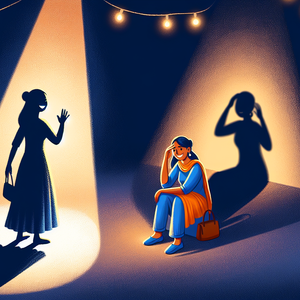Bridging the Gap Between Generations

The generational divide is deeply rooted in the unique experiences and circumstances that shape the perspectives of different age groups. Baby boomers, Generation X, millennials, and Generation Z each bring distinct values and communication styles shaped by the significant events and technological advancements of their formative years. For instance, baby boomers, who grew up in a post-war era, often prioritize face-to-face communication and traditional values. In contrast, millennials and Gen Z have been shaped by rapid technological advancements and global connectivity, favoring digital interactions and social media engagement. These differences can lead to frustration as each generation struggles to understand and appreciate the other's preferences. For example, older generations may view younger individuals' reliance on texting and social media as superficial, while younger generations might perceive older adults' reluctance to embrace technology as a barrier to effective communication. Recognizing these differences is the first step toward fostering mutual understanding.
Fostering Communication Across Generations
To bridge the generational divide, creating environments that encourage open dialogue is essential. Initiatives such as intergenerational programs in schools and community centers can provide platforms for sharing knowledge and experiences. For instance, a community center might host workshops where older adults teach traditional skills, such as cooking or crafting, while younger participants introduce digital tools or social media strategies. This reciprocal teaching not only enhances understanding but also strengthens community bonds. Such intergenerational programs can take various forms, from mentorship opportunities to collaborative projects. For example, a local library could host a "Tech Help Day," where teens assist seniors with their smartphones or computers. This not only empowers older adults but also fosters a sense of accomplishment and camaraderie among participants.
Emphasizing Shared Experiences
While differences exist, there are also numerous shared experiences that can unite generations. Family gatherings, community events, and shared hobbies often serve as common ground for fostering connections. By focusing on these shared experiences, we can build relationships that transcend age barriers. Consider an initiative where grandparents and grandchildren collaborate on a family history project. This activity not only preserves family heritage but also encourages storytelling and collaboration, enriching the bonds between generations. Shared experiences like these can help bridge the gap by enabling individuals to find common interests and values, fostering a sense of belonging and mutual respect.
Learning Opportunities and Mutual Respect
Education plays a vital role in bridging the generational gap. Older generations can share their wisdom and life lessons, while younger individuals can offer fresh perspectives and technological insights. This exchange fosters mutual respect and understanding, enabling both groups to learn from one another. For instance, tech-savvy teens can help their parents or grandparents navigate new devices, while older individuals can provide guidance on critical thinking, resilience, and problem-solving. By creating environments that promote learning, we cultivate a culture of respect that values contributions from all generations.
The gap between generations presents both challenges and opportunities. By fostering communication, emphasizing shared experiences, and promoting mutual respect, we can bridge these divides and create a more inclusive society. As we navigate the complexities of our rapidly changing world, it is essential to remember that every generation has something valuable to offer. Embracing these differences and working together can lead to richer relationships and a more harmonious coexistence. Ultimately, bridging the generational gap is not just about understanding one another; it is about recognizing our shared humanity and the potential for growth that lies in collaboration. By taking intentional steps to connect across generations, we pave the way for a more cohesive and empathetic society that acknowledges and celebrates the strengths of all its members.
Intergenerational Program Coordinator
Community centers, non-profit organizations, educational institutions
Core Responsibilities
Develop and implement community programs that facilitate interaction between different age groups.
Collaborate with local organizations to create workshops and mentorship opportunities.
Evaluate program effectiveness through feedback and participation metrics.
Required Skills
Strong communication and interpersonal skills to engage diverse age groups.
Experience in program development or community outreach.
Familiarity with both traditional and digital communication methods.
Digital Literacy Instructor
Libraries, community colleges, adult education centers
Core Responsibilities
Teach digital skills to older adults, focusing on common technologies like smartphones, social media, and online safety.
Create customized lesson plans that cater to varying skill levels and learning paces.
Assess student progress and adapt teaching methods accordingly.
Required Skills
Patience and empathy when working with older learners who may be hesitant with technology.
Experience in teaching or tutoring, preferably with adult education.
Proficiency in various digital tools and platforms.
Community Engagement Specialist
Municipal government agencies, non-profit organizations, community development corporations
Core Responsibilities
Foster relationships between different generational groups to enhance community collaboration.
Organize events that promote intergenerational dialogue and shared experiences.
Advocate for community needs and represent diverse age groups in planning discussions.
Required Skills
Strong organizational and project management skills.
Excellent public speaking and networking abilities.
Understanding of community dynamics and generational differences.
Family Historian or Genealogist
Historical societies, genealogical organizations, independent consultancy
Core Responsibilities
Assist families in documenting their lineage and preserving family stories through collaborative projects.
Conduct research using historical documents, DNA testing, and online databases.
Facilitate storytelling sessions that engage multiple generations in sharing their experiences.
Required Skills
Proficient in genealogical research techniques and tools.
Strong writing and storytelling abilities to create engaging narratives.
Excellent interpersonal skills for working with families of all ages.
Cross-Generational Marketing Specialist
Advertising agencies, marketing firms, consumer goods companies
Core Responsibilities
Design marketing strategies that resonate with multiple age demographics, focusing on intergenerational appeal.
Conduct market research to understand the preferences and values of different generations.
Collaborate with teams to create inclusive marketing content that reflects diverse perspectives.
Required Skills
Analytical skills to interpret market research data and consumer behavior.
Creativity in developing campaigns that engage various audiences.
Strong writing and communication skills for crafting targeted messaging.


